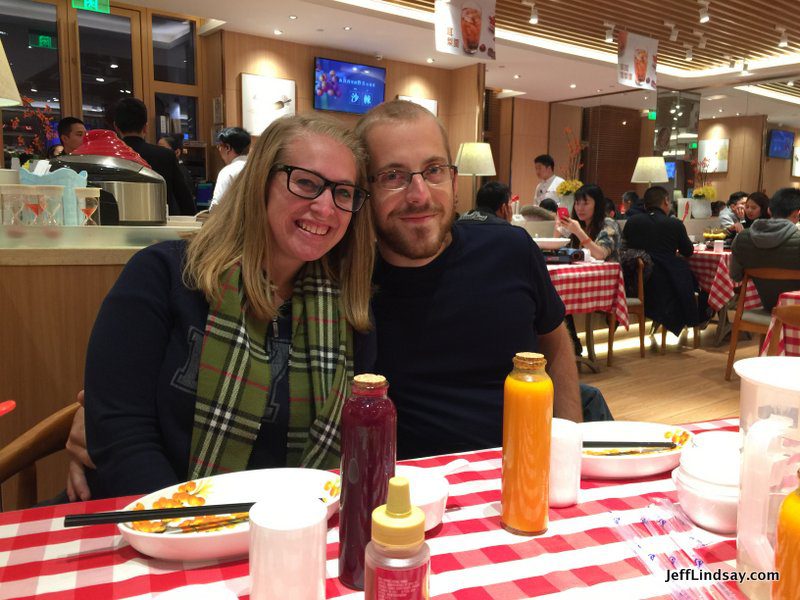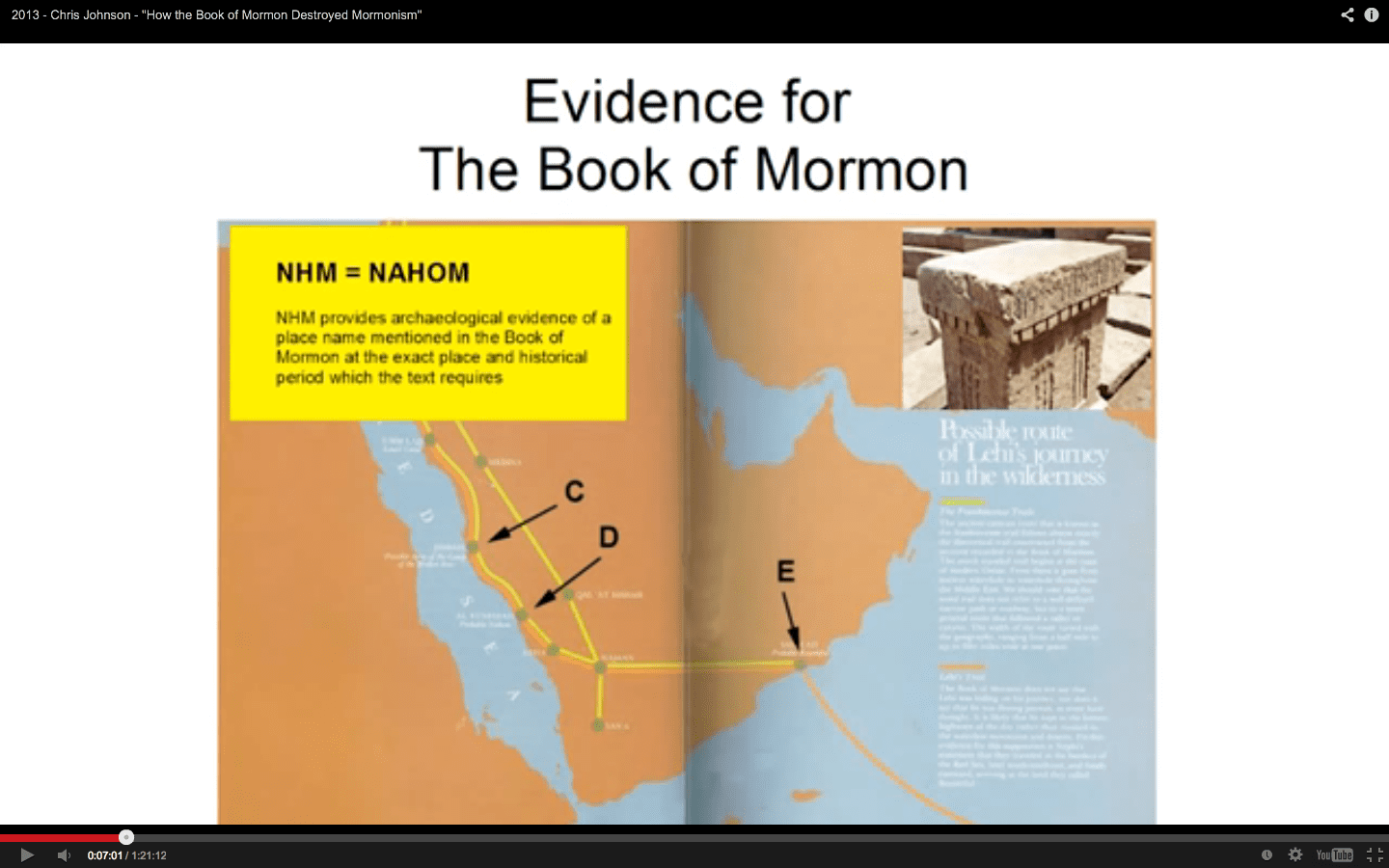One of the important parts of the Book of Mormon that many Mormons try hard to overlook or downplay is the content regarding secret combinations and their destructive role in several ancient American societies (Nephite, Lamanites, and Jaredites). I think there are some vital lessons and prophecies that need to be applied and mined for guidance in our day. I also think that viewing such content as Joseph’s response to Masonry comes nowhere close to accounting for the highly nuanced and accurate treatment in the text. I also feel that examination of the various forms and business models of secret combinations in the world over time can provide evidence for the wisdom, prophetic accuracy, and ancient origins of the Book of Mormon.
The term “secret combinations” is always negative in the Book of Mormon. That term is possibly a derivative from older brass plates material related to the Book of Moses, where the term “secret combinations’ is presented (Moses 5:51). But while Book of Mormon secret combinations are murderous groups pursuing “works of darkness,” a broader definition of secret combinations can include some secretive efforts that are noble and enlightened. In fact, China’s current success and well-being is partly due to a brilliant secret combination. I’m not talking about the one founded the Party in China, beginning with a secret pact here in Shanghai not far from where I live. Rather, I’m talking about the later secret effort where a group of brave men put their lives on the line to fight starvation, and won. That story took place close to Nanjing, home of the impressive Nanjing Branch in the Shanghai International District of the Church, a branch I have visited often. Next time I go, I’m planning to visit the site in neighboring Anhui Province of the founding of the secret combination that saved China, a little known treasure that I can’t wait to see, based on what I recently read about it rise and viral success.
One of my favorite books on life in China is Michael Meyer’s In Manchuria: A Village Called Wasteland and the Transformation of Rural China (New York: Bloomsbury Press, 2015). He shares his experiences living for a while in a tiny village actually called “Wasteland” in the challenging northwestern section of China. In the midst of his book, he recounts the vital story of how China overcame its problem with starvation and bloomed to becoming the booming success that it is these days, in spite of a slowing economy.
He introduces some of the challenges China faced in the 1950s, when the visions of socialism met the reality of poverty and hunger:
“Nineteen fifty-six,” I said reflexively, quoting the village Stone. By 1958 all of China’s co-ops had become “people’s communes.” The policy triggered the Great Famine, killing at least 20 million people; some estimates go as high as 45 million. Officially, the deaths were blamed on natural disasters and the period was labeled the Three Years of Bitterness.
“All our personal food was confiscated during the collective times,” Auntie Yi said. “We used to grind soybeans mixed with barley in secret at home. Everything was supposed to be for the commune. We didn’t even have money. We were paid in work points. At the end of each workday, you had your score assessed and entered into a little handbook for each family. It was casually decided, actually. It wasn’t a true commune: whoever had the power to decide the score earned the most points, or rewarded his family and friends. You knew the standard. If you did hard labor, people would murmur, ‘Give him six points.’ If it was really hard work, you could earn up to ten, even twelve. But the ‘rich peasants’ could only earn up to eight, and every night they would be reminded it was because they had exploited people in the past. That was our family, you know: my grandfather hired people after he migrated here on foot, starting out hauling grain on his back. And my father ran a granary out here. So I was marked. But really, I was lucky. The people who collaborated with the Japanese in Manchukuo got it the worst.” (p. 214)
Then comes the story from a secret combination formed in Anhui Province in the obscure village of Xiaogang:
When Chairman Mao died in 1976, so did his dream of collective agriculture. By decade’s end, farmers were allowed a small, personal plot to supplement crops raised by the village team. The work points system was abolished. “But at every turn, people were unhappy!” Auntie Yi said. “It’s in people’s nature to complain. But very few people complained when da baogan was introduced.
The term meant “the complete allocation of responsibilities,” and the policy meant that individuals, like the hungry Pilgrims, no longer had to farm as a team. The change was born not in a ministerial meeting but in a farmer’s home in the central China province of Anhui, where The Good Earth had been set. A corn-growing village named Xiaogang was starving, suffering under the nation’s quota demands. Its residents dug up roots, boiled poplar leaves with salt, and ground roasted tree bark into flour. Entire families left their thatched-roof, mud-walled homes and took to the road to beg.
A farmer named Yan Hongchang, whose studies had ended at middle school, was the deputy leader of the village work team, overseeing production. But there was no production that autumn of 1978. During the Great Famine, a quarter of the county’s residents had died. “We knew what it was like to starve, and we would rather die any other way,” Mr. Yan later recalled.
On the night of November 24, Mr. Yan summoned the heads of the village’s twenty families to a secret meeting. The village accountant was deputized as a secretary, and on paper torn from a child’s school exercise book transcribed a seventy-nine-word pledge to divide the commune’s land into family plots, submit the required quota of corn to the state, and keep the rest for themselves. “In the case of failure,” the document concluded “we are prepared for death or prison, and other commune members vow to raise our children until they are eighteen years old.” The farmers signed the document and affixed their fingerprints.
Thus began China’s rural reform.
Today a large stone monument to the pact greets tourists to the village But in the spring of 1979, a local official who learned of the clandestine agreement fumed that the group had “dug up the cornerstone of socialism„ and threatened severe punishment. Thinking he was bound for a labor camp, Mr. Yan rose before dawn, reminded his wife that their fellow villagers had promised to help raise their children, and walked to the office of the county’s party secretary. But the man privately admitted to Mr. Yan that he knew, since the pact had been signed, the village’s winter harvest had increased sixfold. The official told Mr. Yan he would protect Xiaogang village and the rebellious farmers so long as their experiment didn’t spread.
Villagers gossip; farmers talk about their fields. Soon neighboring hamlets copied Xiaogang’s model. News reached the provincial authorities, who were unwilling to punish farms that were, at last, producing food. Thus, they did not brand the abandonment of collective farming as counterrevolutionary but instead endorsed it as “an irresistible wave spontaneously topping the limits once enforced by the state.
In Beijing, three years after Chairman Mao’s death, Deng Xiaoping was opening China to foreign trade and liberalizing the economy. Yet originally he ruled against allowing “household farms,” afraid that critics would again label him a “capitalist roader,” for which he had been purged during the Cultural Revolution. However, the grassroots movement that began in Xiaogang made the decision for him. In a series of policies issued between 1978 and 1984, China formalized the Household Contract Responsibility System (colloquially called chengbao). It allowed families to farm their own allocation of land in exchange for turning a portion of their crops over to the state. What remained was theirs to eat, and to sell at unregulated prices. China’s communes, brigades, and production teams were renamed as townships, villages, and hamlets, respectively.
Xiaogang was made into a living patriotic education base where a small museum displays a replica of the farmers’ pact, since the original was lost’ Exhibits praise the bold wisdom of its ringleader, Yan Hongchang, his cosignatories, and the Party. But not everyone bought the high rhetoric. “My father signed that paper because we were starving,” Mr. Yan’s son told me. “There was nothing heroic about it. He had no other choice. It was human instinct, trying not to die. It’s strange the leaders want to celebrate survival.”
The reforms continued: in 1984, fifteen-year leases were introduced for family farm plots—then extended to thirty years in 1993. The state stopped requiring grain procurement in 2001 and abolished all agricultural taxes in 2006. (pp. 215-217, viewable at Amazon.com)
I thought about Xiaogang and the daring secret combination tonight as we just completed a move (our 4th in 5 years) to a new apartment in China in a marvelous, lively neighborhood in Gubei, where we walked into a fruit store next to our complex and found some of the best, freshest fruit we’ve had. What abundance we enjoy in China! How much we owe to the farmers and many others who make this possible. How much we owe to the very brave, starving farmers who helped officials look at China in a new way and opened an era of prosperity.
Xiaogang was in the news recently as the President of China visited it and recognized it as the epicenter of the reforms that have made China so prosperous.
The photo and caption below come from a 2016 press release from China (originally from the government publication Qiushi):
HEFEI, April 27, 2016 (Xinhua) — Chinese President
Xi Jinping visits the family of Yan Jinchang (3rd R), who was a leader
on implementing the “household contract responsibility system”, at
Xiaogang Village of Fengyang County in Chuzhou, east China’s Anhui
Province, April 25, 2016. Xi made an inspection tour in Anhui from April
24 to 27. (Xinhua/Li Xueren)
My thanks and love to the brave families of Xiaogang who showed the world that simple incentives to produce can result in a boom in production. Amazing stuff!
Also amazing is the experience of food in China. One thing China has taught me is to value and cherish food. Food matters so much here, as it should. Food here is about more than just not being hungry. It is about relationships, joy, love, and the quality of life. Food is something to never take for granted. We need it, and it can vanish so quickly due to drought, disease, overabundance of government, whatever. Having food storage is vital to be ready for the disasters that surely will come. May your food chain remain intact without the need to risk your life with secret combinations in your own country! May we be grateful to those who have done so much to make our current abundance possible.













A great story of bravery and indicative of the importance of allowing private rewards for personal work. Communities and communes are made up of individuals.
Did you mean to have this juxtaposed against the stories out of Venezuela? Because if you didn't, it was quite timely anyway.
Juxtapose away. Venezuela needs to learn from someone. If they (or rather, their leaders), like most Americans and their leaders, won't learn from the founding fathers of the United States, then at least learning from the great economic revolution of China would help save their necks.
Thanks for the story of Xiaogang. I don't need to derail the thread from being about it, but perhaps the topic of "secret combinations" in the Book of Mormon could be the focus of a post some time. I haven't thought much about it, but at first glance it does seem anachronistic as a concern. Do any other ancient texts mention anything similar?
Great question, James. First let me ask what marks this as anachronistic in your view? Is it the phrasing or the concept of diabolical plots and conspiracies?
The phrase "secret combination" somehow makes me think of a group of conspirators bigger than just a few schemers. I mean, a few people enacting a scheme isn't really a thing that deserves a fancy new term. Also I think of a secret combination as a sort of permanent conspiracy, as opposed to a group that forms in order to enact a one-time plot. It's a conspiracy whose main purpose is just for the conspiratorial group to exist. So for instance the Catiline conspiracy in Rome, in 63 BC, was a real ancient conspiracy; but was it a secret combination in the Book of Mormon sense?
I don't really think that I've heard of any ancient discussions of politically active secret societies. They seem to have been a phenomenon of the 18th and 19th centuries (when they were quite the fad — Freemasonry was just one of the biggest brands in a thriving industry). Why weren't secret societies a thing, until then? It strikes me that secret power might not even have been possible until more modern times. It seems to me that in ancient times political power must have meant either owning a lot of land or commanding an army. Neither of those things could really be secret.
I think that the Sicarii might qualify:
https://en.wikipedia.org/wiki/Sicarii
Steve
1606.
& les lately by the treason of Percy, Catesbie and Faux, who of meer loue sought to blow vp the king & the whole parliament. to omit to speake of their secret combinations and practises,
By the King. 1607
IT is a thing notorious that many of the meanest sort of our people in diuers parts of our kingdome, either by secret combination, wrought by some wicked instruments, or by ill example of the first beginners, haue presumed lately to assemble them∣selues riotously in multitudes,
1602.
His Inquisition, his secret combination with the Guisian, his armies by sea and land do testifie agaynst him.
Huh. The Sicarii are an example of a kind of secret power that ancient people could indeed have: a hidden knife.
The Sicarii were terrorists, pretty much as we know them today, as far as I can tell. The thing that they seem mainly to have combined to do was to stab people in crowds. Perhaps that was only their most noticed activity, and they had many other operations that remained secret from history. But if stabbing was all the Sicarii did, then it would seem a bit strange to call them a secret combination, because the term would be perversely vague, for a bunch of murderers. It would be like calling a serial killer a delinquent.
As I further unpack what the term "secret combination" seems to me to mean, I find that an important part of the meaning seems to be having a broad range of secretly combined activities. The term "combination" is very vague, and so using such a broad term, instead of calling whatever spade it was a spade, would seem to imply that no more precise term could be accurate, because the group did a lot of different things. This is why to me it seems that the Sicarii might indeed be an example of a secret combination, but only in the way that a serial killer is an example of a delinquent. It would never occur to me to call the Sicarii a secret combination; they were something more specific than that, and the specific feature of murder is too important not to mention.
Interesting that "secret combination" was a standard expression in the early 1600s. Are there also later examples, apart from the Book of Mormon? I'd be surprised if the expression was current in colloquial use in Smith's day, but people in his time read a lot of old books, and it's obvious that Smith's contemporaries recognized the term and knew what it meant, because otherwise there would have been a lot of bemused looks on early Mormon faces when they read the Book of Mormon. So I doubt that the expression "secret combination" is going to change the debate over Book of Mormon language — though it might be an additional example to consider in that context.
What interests me more right now is what these examples say about what "secret combination" actually means. Since it was a standard expression, I think we can assume that what it means in the Book of Mormon must have been what it usually meant (or at least one of its standard meanings, if it had several possible nuances).
The first and last examples from Anonymous 8:31 seem to use "secret combination" as an activity, not a group or institution. So even just two or three people can perform an act of secret combination. Even though the act is vaguely defined, it seems to imply a single specific act, rather than an ongoing quality of acting, because the same group of three people can perform secret combinations in the plural. Perhaps the usage is similar to "idolatries".
The second example offers "secret combination" (in the singular) as a potential cause of riots. The secret combination would have been "wrought" (that is, created) by "wicked instruments". I'm pretty sure that "instruments" in that time and context would have meant human agents, not mechanical devices. So the scenario seems to be something more like a large secret society organized by an inner core group. This is more like what I originally thought of "secret combination" as meaning.
From these three 1600s examples, at least, it seems that "secret combination" may thus have had a broader possible meaning than I originally thought, but that one of its meanings could indeed be a quasi-Masonic secret society, large in membership, organized, and prepared to pursue its agenda through a broad range of means.
It may be worth digging for some more uses of the term, perhaps closer to Smith's time, to see whether this latter reading is really tenable, or if it's just a fluke that only fits for that one 1607 proclamation against mean rioters.
How does the Book of Mormon seem to use the term?
To me, the term "secret combination" simply refers to individuals that combine their efforts to do something not meant to be public at least until after it is accomplished. That could mean a single act, or an ongoing agenda. From memory, the secret combinations in the Book of Mormon utilized secret signs to communicate with one another. They usually operated for the purpose of undermining more established societal norms, and profited not by industry but by theft, murder and destruction. There is textual evidence in the BoM that the organizational details may have been "inspired" by Satan. At one point this information was recorded (not sure why) and hidden away so that it wouldn't propagate into future generations, but it returned anyway.
Hi James,
The classic Mormon understanding of secret combination is to murder to get gain. In the example of the Sicarii, they tried to disrupt Roman rule. One of their tactics was to stab people in crowds. It also appears in the Wiki article that they massacred the village of Ein Gedi to achieve their political purpose. So, while they were a bunch of murderous thugs, they did have an agenda. They appear to have met in secret to coordinate their agenda, lasted for decades, and murdered high profile people as well. They eventually helped in ousting Roman rule. The activities of the Sicarii are the same sorts of activities that the secret combinations in the Book of Mormon accomplished.
Steve
Huh. Okay, maybe the Sicarii are indeed a historical example of something like the secret combinations of the Book of Mormon. Are there any others? The point is whether any other ancient writings refer to secret combinations (by whatever term) as a recognized kind of thing, of which the Sicarii might have been one example, or whether the Sicarii were perceived as a weird one-off group, nothing like which had ever otherwise been known.
It is worth noting that the Sicarii could also be seen (and no doubt saw themselves) as a resistance group, fighting foreign domination. Even if their means were misguided at best and abominable at worst, they weren't just in it for gain. If an ancient writer had the Sicarii in mind as the iconic example of a secret combination, that writer would have to be pretty reactionary to describe the whole concept of secret combination in purely negative terms, the way the Book of Mormon seems to do.
Just to illustrate my point more clearly, let me take a modern example with no bearing on the Book of Mormon. Were the French maquis in Word War II a secret combination? In a sense, sure; but if they're an iconic example of the concept, then the concept can't be all bad. So if the French Resistance isn't an ideal example of what the Book of Mormon means by "secret combinations", then neither are the Sicarii. And we're back looking for ancient examples to show that the concept isn't anachronous.
James, the Gadianton's apparently saw themselves much as you describe. Check out 3rd Nephi 3 to see what I mean. The Book of Mormon as a whole describes them as bad because that is how Mormon viewed them.